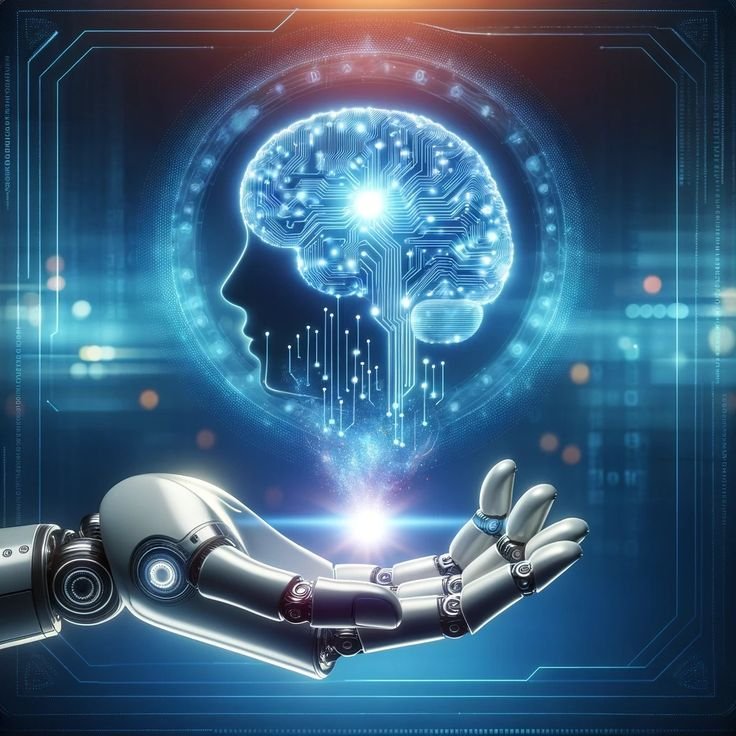
The integration of Artificial Intelligence (AI) in education has ushered in a new era of personalized learning experiences. AI has the potential to transform traditional educational models by offering tailored learning pathways that cater to the unique needs, preferences, and abilities of individual students. This article delves into how AI is revolutionizing education through personalized learning, the benefits it brings, the challenges it faces, and the future prospects of AI-driven education.
1. The Rise of Personalized Learning
Personalized learning refers to educational approaches that customize learning experiences to meet the individual needs of each student. Traditional classroom settings often struggle to accommodate the diverse learning styles and paces of students. However, AI technologies have made it possible to offer personalized learning experiences at scale. By analyzing data on student performance, learning behaviors, and preferences, AI systems can create customized learning plans that adapt in real-time to each student’s progress.
2. How AI Personalizes Learning
AI personalizes learning by leveraging a variety of technologies and approaches:
- Adaptive Learning Platforms: These platforms use AI algorithms to analyze student data and adjust the content, pace, and difficulty of lessons. For example, if a student struggles with a particular concept, the platform can offer additional resources or exercises to help them master the material.
- Intelligent Tutoring Systems: AI-powered tutoring systems provide one-on-one instruction, offering personalized feedback and support. These systems can identify gaps in a student’s knowledge and offer targeted interventions to address them.
- Learning Analytics: AI-driven learning analytics tools track and analyze student data, providing insights into learning patterns and outcomes. Educators can use this data to tailor instruction and support to each student’s needs.
- Natural Language Processing (NLP): NLP enables AI systems to understand and respond to student inquiries in a natural, conversational manner. This technology powers virtual assistants and chatbots that can provide personalized assistance, answer questions, and guide students through learning materials.
3. Benefits of Personalized Learning Through AI
Personalized learning through AI offers numerous benefits that enhance the educational experience for students, educators, and institutions:
- Increased Engagement: Personalized learning experiences are more engaging because they align with each student’s interests and learning preferences. By delivering content that resonates with students, AI helps maintain their motivation and interest in learning.
- Improved Learning Outcomes: AI-driven personalization ensures that students receive the right level of challenge and support, leading to better understanding and retention of material. Students can progress at their own pace, reducing the likelihood of falling behind or becoming disengaged.
- Efficient Use of Time: AI can streamline the learning process by identifying areas where students need the most help and focusing on those areas. This allows students to spend more time on topics they find challenging and less time on concepts they have already mastered.
- Equity in Education: AI has the potential to reduce educational disparities by providing personalized support to students from diverse backgrounds. Regardless of their starting point, all students can receive the tailored instruction they need to succeed.
- Teacher Support: AI does not replace teachers but rather enhances their ability to provide personalized instruction. Educators can use AI-generated insights to identify student needs, track progress, and adjust their teaching strategies accordingly.
4. Challenges of Implementing AI in Education
Despite the numerous benefits, the implementation of AI in education faces several challenges:
- Data Privacy and Security: The collection and analysis of student data raise concerns about privacy and security. Educational institutions must ensure that AI systems comply with data protection regulations and safeguard sensitive information.
- Bias in AI Algorithms: AI algorithms are only as good as the data they are trained on. If the data contains biases, the AI system may perpetuate those biases, leading to unfair or discriminatory outcomes. It is crucial to develop AI systems that are transparent, fair, and inclusive.
- Access to Technology: Not all students have equal access to the technology required for AI-driven personalized learning. Addressing the digital divide is essential to ensure that all students can benefit from AI in education.
- Teacher Training: Educators need to be trained in using AI tools effectively. This includes understanding how AI systems work, interpreting AI-generated insights, and integrating AI into their teaching practices.
- Cost of Implementation: Developing and deploying AI technologies in education can be costly. Schools and institutions may face financial barriers to adopting AI-driven personalized learning solutions.
5. Case Studies of AI-Driven Personalized Learning
Several educational institutions and platforms have successfully implemented AI-driven personalized learning, demonstrating its potential:
- Carnegie Learning: Carnegie Learning’s AI-driven platform uses cognitive science and adaptive learning technology to create personalized math learning experiences. The platform continuously assesses student performance and adjusts the difficulty of problems to ensure optimal learning.
- DreamBox Learning: DreamBox Learning is an adaptive math program for K-8 students that uses AI to personalize instruction. The platform provides real-time feedback and adjusts lessons based on each student’s learning progress.
- Knewton: Knewton’s AI-powered adaptive learning platform offers personalized learning experiences across various subjects. The platform analyzes student data to create individualized learning paths and provide targeted recommendations.
- Coursera: Coursera, a leading online learning platform, uses AI to recommend courses and content to learners based on their interests, goals, and learning history. The platform’s AI-driven features help learners find relevant courses and stay on track with their learning objectives.
6. The Future of AI in Education
The future of AI in education is promising, with several trends and developments expected to shape the landscape of personalized learning:
- Increased Integration of AI in Classrooms: As AI technologies become more accessible, their integration into traditional classroom settings will likely increase. AI-driven tools will support teachers in delivering personalized instruction and managing diverse classrooms.
- Expansion of AI-Driven Learning Platforms: The growth of AI-driven learning platforms will continue, with more options available for students and educators. These platforms will offer a wide range of subjects, catering to learners of all ages and levels.
- AI-Powered Lifelong Learning: AI will play a crucial role in supporting lifelong learning by offering personalized learning pathways that adapt to learners’ evolving needs and interests. This will be particularly important in a rapidly changing job market where continuous upskilling is essential.
- Ethical AI in Education: As AI becomes more prevalent in education, there will be a growing focus on ethical AI practices. This includes ensuring transparency, fairness, and accountability in AI systems, as well as addressing issues related to data privacy and security.
- Collaboration Between AI and Educators: The future of AI in education will involve greater collaboration between AI systems and educators. AI will enhance teachers’ ability to provide personalized instruction, while educators will play a critical role in guiding and shaping AI-driven learning experiences.
7. Conclusion
AI in education is transforming the way students learn by offering personalized learning experiences tailored to their unique needs and preferences. The benefits of AI-driven personalized learning are vast, from increased engagement and improved learning outcomes to greater equity in education. However, the implementation of AI in education also presents challenges, including data privacy concerns, bias in AI algorithms, and access to technology.
As AI continues to evolve, its role in education will expand, offering new opportunities for personalized learning at all levels. The future of AI in education holds the promise of more inclusive, efficient, and effective learning experiences, empowering students to reach their full potential.
Educators, policymakers, and technology developers must work together to ensure that AI in education is used responsibly and equitably. By addressing the challenges and harnessing the potential of AI, we can create a more personalized and adaptive education system that meets the needs of every learner.









